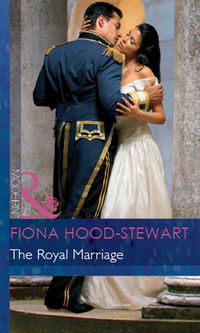
Полная версия
The Journey Home
“He wants to expand it. In fact, he’s offered me the job of chief editor in New York,” she said casually, knotting the fringe of the cushion. “I don’t know, though. I love London, but everything is happening over there. Lots of Brits in the business on Madison Ave., you know.”
“Do you come in the package with the paper?”
“What a horrid thing to say,” she exclaimed, aiming the cushion at him. He dodged it. She brooded for a second then asked, “Did Indy look miserable? I talked to her yesterday, and she sounded pretty down in the dumps. Not her usual self at all. Lady El was so super, we’ll all miss her.”
“I don’t know.” He replied, his tone noncommittal, “I learned about her mother’s death by pure fluke. If I hadn’t put my foot in it, she probably wouldn’t have mentioned it. She was the perfect hostess.”
“Typical!” Chloë exploded. “I wish she’d loosen up. It was that marriage to that prick, Christian, that made her clam up like that.”
“She’s married?” He felt an inexplicable stab of disappointment.
“Not anymore, thank God,” she added darkly, taking a long, thoughtful sip of her drink.
“How long were they married?”
“A couple of years.”
“What happened?”
“Now who’s being nosy?”
“Mere curiosity.”
Chloë frowned. “He dropped her like a hot potato for a German heiress, a Princess von something-or-other, when he found out that Lady El had pretty well got through Indy’s father’s fortune. Hopeless with money, poor Lady El. I can’t think why India’s father didn’t leave it in trust for them, but anyway, he didn’t. So that was that as far as the dashing Comte de Monfort was concerned.” She looked up, her eyes full of anger. “The coward didn’t have the guts to tell her outright. He wrote her a long rambling letter—he even had the bloody nerve to say he owed it to his family to preserve the family fortunes and the purity of their lineage. Can you believe it?”
“What a jerk,” he said, feeling unaccountably angry on India’s behalf.
“Yes, and now all she ever does is work. I could murder Christian for what he did. It was the last straw. It affected her more than she’ll admit. That’s why she’s thrown herself into La Dolce Vita so intensely. That and the fact she needed to make money or she would have lost Chantemerle.”
Jack listened intently, dying to ask more, but knowing it would only excite Chloë’s curiosity.
She yawned. “I’d better go and phone Indy, poor darling, then I’m off to bed. I’m exhausted.”
“Good night, brat.” Jack rose and handed her the fur coat.
“Brat indeed,” Chloë sniffed as she picked up her bag.
“You need a guy who can keep you in line, young lady.”
Chloë stuck her tongue out at him and left.
Jack turned back into the room, smiling. He picked up a book left open on the table next to the sofa and glanced at it. It was the latest Grisham. That should keep him busy for the evening.
Making sure the fire was out, he turned off the lights. Then he walked into the hall and slowly up the main staircase, his mind straying back to India. By the time he reached his room, he’d persuaded himself there was nothing unusual about his interest. It was just an interesting set of circumstances and frankly, he’d feel sorry for anyone in her situation—it was only natural.
He glanced at the book wryly. It was a long time since he’d needed anything to keep his mind from straying to a woman. Don’t get involved, Jack. It’ll only mean trouble, a little voice inside him warned. But his gut told him otherwise, and Jack always followed his gut.
3
The visceral attachment to Dunbar that India was experiencing had caught her wholly by surprise. Considering she’d never lived or spent any long periods of time here, she was unable to fathom why everything felt so strangely familiar. She hadn’t been back much since her childhood, yet she felt at home, as though part of her being had remained fettered here all these many years. It was like a colorful tapestry and she a silken thread, woven into the intricate pattern that reached deep into Dunbar’s soul.
She wandered through the picture gallery and gazed up at the portrait of Lady Helen, her great-grandmother. Something in the soft hazel eyes spoke of wisdom and understanding, as though Lady Helen were telling her not to worry, to go on her way in peace. India found herself smiling back.
Moving silently in the early-morning hush, she went from room to room, etching each detail to memory. This was a special moment, possibly one of the last she would ever spend here.
The thought of the estate being sold made her cringe. Walking through the house with Jack yesterday had brought home just how much Dunbar really meant to her, and she wondered for the umpteenth time what its final destiny would be. Even if Serena inherited, would she be prepared to keep up the property, to put in the time and work it would take? She considered her half sister for a moment and sighed. Probably not. If the past was anything to go by, Serena would sell and be out of there before she could say Jack Robinson.
She reached her mother’s bedroom, gently twisting the handle of the large oak door. The tranquillity within the lavender-scented room remained intact, as though Lady Elspeth were merely out for a while. The bottle of Yardley’s scent she’d perfumed her handkerchiefs with stood on the skirted dressing table. Beside it stood the Charles of the Ritz face creams, next to the crystal container of cotton wool.
India trailed her fingers nostalgically over the chintz counterpane, stopping to gaze around the room, reliving for a heartfelt moment the ever-present images of her mother. Then she looked through the frosty panes at the fresh snow covering the lawn. The white blanket shimmered under the silver rays of winter sunshine, playing a silent game of hide-and-seek with the ponderous clouds traveling south toward the hills beyond. It was a peaceful sight and she stood for a while gazing at the Dunbar oak, standing regal and alone.
William, the first Dunbar to settle here, had planted the tree in 1280. Suddenly she remembered her mother repeating his pledge, which had been handed down from generation to generation: While the oak tree stands, a Dunbar will always walk this land.
India drew her eyes away sadly. If the property were sold, William’s vow would be broken. The scene reminded her of the Constables and other paintings hanging on the drawing-room walls. One in particular came to mind, and she wondered how many of them would have to be sold to cover the taxes and death duties she knew would be crippling.
As she was about to leave, India caught sight of the small writing desk Lady Elspeth had used for her private correspondence. An uncapped fountain pen lay on a sheet of half-written writing paper. She crossed the room and picked up what appeared to be an unfinished letter, realizing with a start that it was addressed to her.
My dearest India,
I am sending this off to you today, for I am most distressed. I am suffering from a dreadful dilemma and need to speak to you urgently. Please come to Dunbar as quickly as you can. I’d call, but I’m afraid I will be overheard. You need to be aware—
The letter was cut short, as though Lady Elspeth had been interrupted. India frowned, glancing at the date. The letter had been written on the day of her mother’s death. What could possibly have been troubling Lady Elspeth so deeply? What was this fear of being overheard? India took the note and, folding it carefully, slipped it into her jacket pocket, frowning. She couldn’t allow herself to think about this now. Later, after the funeral, she’d try to piece things together.
The house was still quiet as she descended the main staircase and headed to the breakfast room, trying to shake off the troubling sensation the note had left.
Reaching the door, she took a deep breath and straightened the skirt of her black Chanel suit, hoping Serena was still in bed, and that she might have the place to herself before the onslaught later that morning.
But no such luck awaited her. Serena lounged at the table, one leg flung carelessly over the arm of the next chair. She looked up as India entered.
“Good morning.” She waved languidly to a chair at the table and lit a cigarette. “Have some breakfast, God knows we’ll need it. Kathleen was in here a few minutes ago bumbling on about Ian and that lawyer Ramsey being here at ten. You know, I don’t know how Mummy stood Kathleen around her the whole time. She can be such a bore. The way she goes on, you’d think she owned the place,” she added resentfully.
India murmured good morning, then sat down, listening to Serena with half an ear. She wasn’t hungry, but the last thing she needed was her tummy rumbling throughout the reading of the will.
She opted for toast and went to the sideboard, placing two pieces of bread in the toaster. Serena seemed preoccupied, but over the years India had become used to her sudden changes of mood. One minute Serena could be effusive, the next sarcastic. Now she seemed far away.
India watched the toast pop up, thinking how odd it was to have the same parent, yet feel so distant. It made her suddenly sad, especially now that only they remained.
“Toast,” Serena exclaimed suddenly, making India jump. “Not a bad idea. Pop in a piece for me, will you?” She stubbed out the last of her cigarette in an empty glass of orange juice, and reached down her leg. “I tripped on that wretched carpet in the hall. It’s all ragged at the edge. Almost broke my leg. In fact, I think I’ve twisted my ankle.” She grimaced and rubbed her shin gingerly. “Funny finding Jack Buchanan here,” she continued as though the subject were one and the same. “Do you know he hardly even thanked me when I dropped him off at Dalkirk? I thought it was damn nice of me to go out on such a filthy night. Some people are thoroughly bad-mannered—but I suppose they’ve never been taught otherwise. By the way, what did you think of him?” She glanced at India. “He’s Peter Kinnaird’s partner, you know. Stinking rich, of course. I’m surprised someone hasn’t nabbed him yet.”
“Perhaps he’s involved,” India remarked, returning to the table and handing Serena the silver toast rack.
“Not him! He’s very much the ladies’ man. That I can assure you,” she said with a sly smirk. “Not your style though, I shouldn’t think. He’s more the let’s get straight to it type, which I’m sure you’d disapprove of.”
“It’s nothing to me what or who he is,” India replied indifferently.
“Just don’t get your fingers burned, darling. I saw the way he was eyeing you. He’s tough as nails, you know, but between you and me, he’s a damn good fuck.”
India set her teacup back in the saucer with a snap. “Serena, I don’t care if he’s God’s gift to women. All that concerns me right now is Mummy’s funeral and what’s happening later on this morning. I think you might show a little more respect.”
“Oh, la-di-da. Excuse me for offending your sensibilities.” Serena cast her a sarcastic look. “Anyway, what matters now is getting the will business dealt with,” she exclaimed in a very different tone.
“Do you have any idea how things stand?”
“No. Ramsey keeps harking on. He says we mustn’t mention the difficult straits the estate’s in. As if I would. I’m the last person to want a rumpus. I’d be out on the street if it weren’t for the bank loaning me money because I stand to inherit Dunbar.” She lit another cigarette and mused. “I’m going to have enough to do here as it is without a bunch of panicked tenants and staff on my hands.” Serena flicked back a strand of her long blond hair with a disdainful sniff.
India said nothing. She knew very little about the intricacies of running an estate, but imagined they must not be easy. Serena spoke as though she already owned the place, and India wondered with a pang if she’d be a good caretaker. It would make sense if Serena inherited. After all, she was a part of this closed little social enclave, where she herself was—or at least had been made to feel—an outcast.
“The home farm has to be dealt with. As for the shoot—But I shouldn’t be boring you with things that you know nothing about. I’ll just have to get on with it, I suppose—unless I decide to sell,” she added casually.
“Sell?” India asked, dismayed despite herself. “But there have been Dunbars here for over seven hundred years, Serena. I gather things aren’t in great shape financially, but surely everything should be done to try and hold on to the property. I think that’s what Mummy would have expected.”
“I don’t know if I’m prepared to go to all the trouble and expense of keeping the place. Plus, think of the money I’d make. You don’t have to worry about that sort of thing, do you?” Serena raised a haughty eyebrow.
Up until that morning India hadn’t thought seriously about the will, her mind too consumed with the shock of her mother’s death, but her hackles rose at Serena’s blithe disregard for the estate she apparently already assumed was hers. “If you mean, can I get by with what I make? Yes, I can. It’s taken me a few years but things are running pretty smoothly at La Dolce Vita, and this last job in Brazil finally got rid of the mortgage on Chantemerle. But that has nothing to do with this. I don’t know that I want to sell Dunbar.”
Serena looked astonished. “Who says you’ll have anything to do with it? You don’t really think Mummy would expect me to share Dunbar with you?”
“I see no reason why not,” India answered levelly. “You seem to forget that I have as much of her blood as you.”
“Yes, unfortunately. Mummy was a traitor to me and to her class. She had no business marrying your father, and much less having you. She owes me Dunbar.”
India controlled her temper with an effort, finally understanding Serena’s veiled sarcastic comments over the past years. She stood up and went to the fireplace.
“It must be lovely to waltz through life so completely convinced of one’s innate superiority, Serena, but forgive me if I don’t curtsy and kiss your ring. You have no right to speak to me like that,” she said, her voice controlled.
“I’ll tell you exactly what gives me the right. I was born before you and my father was a nobleman. You are nothing but a bad mistake, one that Mummy regretted but was too proud to do anything about. I suppose you think that if you inherit Dunbar you’ll become one of us. But you won’t, you know. You’ll always be an outcast.” She gave a short, harsh laugh.
“Surely you don’t think I care what society thinks of me?” India gave an astonished laugh. “I stopped worrying about fitting in years ago. What I’m worried about is Dunbar, about the land and the people, like Mrs. Walker and old Tompson, who’ve worked here for thirty-some years and now have nowhere to go. Surely that must mean something to you, Serena?” India struggled to master her fury, swallowing the bile that rose bitterly in her throat and clenching her fists till her knuckles turned white. “And as for rights, I am as much a part of this family as you, whether you like it or not. This is the home of my ancestors, too, and there is no reason why I shouldn’t have exactly as much say when it comes to Dunbar’s future.”
“You’re either nuts, India, or you simply don’t understand these things.” Serena shook her head pityingly and reached for more coffee.
“Good morning, ladies.” The sound of a guttural male voice made India spin on her heel. Maxi, Serena’s German boyfriend, stood in the doorway, pasty and stiff with his formal bow and immaculate dress. His blond hair was cut short, with geometrical precision, and slicked back from his forehead. He’d obviously had his ear glued to the door, she realized angrily.
She looked him over, studying the supercilious twist of his lips, the watery blue eyes void of expression, wondering, not for the first time, what Serena could possibly see in him. And she refused to discuss their family affairs in front of strangers.
“I’m going upstairs,” she announced, not bothering to conceal her dislike.
“Temper, temper,” Serena murmured as India prepared to leave. She turned to Maxi, laughing. “India actually thinks Mummy might have left her Dunbar,” she exclaimed with an amused smirk as he moved over to the table and sat down.
At least he had the grace to appear uncomfortable, India noted. But she didn’t like the ease with which he settled at the table, looking for all the world as though he owned the place.
“Don’t be late for the reading of the will,” Serena threw at her. “A mere formality I’m sure, but one that has to be gone through. Then we’ll know exactly how things stand, won’t we, India dear?”
“Yes, we shall,” India replied curtly, staring Serena straight in the eye. “But let me make one thing perfectly clear. He’s not to be here for the reading of the will. This is a family affair.”
“How dare you speak like that to poor Maxi, when he was so kind to Mummy.” Serena’s voice rose angrily.
“Hmm. Tell me, Serena, why was Mummy so anxious for me to come here? Why did she write to me, requesting I come in person?”
“I have no idea what you’re talking about, India. But I’ll have whoever I want in this house.”
“Not until we know whose house it is.” She turned and faced Maxi, who stared at her with undisguised disdain. “I think you’ve both been trying to pressure Mummy to sell Dunbar, and that’s why she was so upset.”
Serena rose abruptly, and the two women faced each other. “Don’t you dare speak to me or any of my friends like that. Pressuring Mummy indeed.” Serena leaned forward, blond strands falling wildly about her face. “You say one more word and—”
“I’ve taken about as much rudeness from you as I’m prepared to stand, Serena,” India replied, knowing she was losing her temper, but beyond caring. “I won’t have you insulting Mummy’s memory on the day of her funeral with your abominable behavior. At least you could pretend you care.”
“How dare you? How dare you speak to me in that tone?” Serena’s voice rose to an even higher pitch.
“I should have spoken to you like this years ago, but I never did because I didn’t want to upset Mummy, and I had the misbegotten idea that someday we might actually get on together.”
Serena cast India an angry look and returned to her seat at the head of the table.
“Serena, darling, calm down, my dear.” Maxi walked over and placed a hand on her shoulder.
“I’m sure you understand that this is a family affair and that you have no business here. It’s nothing personal,” India said, addressing him as calmly as she could.
“He’s not leaving. I have every right to have him here. We’re getting married, after all. At least I can hold on to a man.”
“You’re wasting your time, Serena. I refuse to rise to your bait.” India turned on her heel and walked from the room, closing the door loudly behind her.
She sighed with relief, unclenching her fists, and headed quickly up the stairs and along the passage to her bedroom. There she lay down on the bed, determined to calm down before the reading of the will, careful not to wrinkle her clothes. The Chanel suit was special, a gift from Lady Elspeth a few years back when money had been no object. India smiled. Her mother had always been so chic, she’d want her to look her best today.
She thought suddenly of Jack and what Serena had said, wondering if he had slept with her. And what did it matter if he had? It was really none of her business. Today she had vital issues to deal with, issues which could change her life, and the lives of those who had served her family so faithfully. She closed her eyes and breathed deeply, conscious that all she could do was wait and prepare to deal with the worst.
Mr. Ramsey, the gray-suited family solicitor, put on his tortoiseshell glasses and addressed the room at large.
India sat on the sofa next to her cousin Kathleen, who, over the past few years, had been Lady Elspeth’s faithful companion. At forty-seven, Kathleen was plump and cheerful, her rosy cheeks wide and round below a pair of twinkling hazel eyes. Her hair was short, nondescript and graying, and the faded tweed skirt and jacket she wore were as threadbare as the sofa they were sitting on. Mrs. Walker sat on India’s left, sniffing now and then into a large handkerchief. Ian, India’s second cousin, sat opposite, his thin frame stiff, his dim blue eyes glancing disapprovingly at Serena, who sat next to him looking bored with the whole proceeding. She obviously considered this a triviality in the bigger scheme of her taking possession of Dunbar. Thankfully, there was no sign of Maxi.
When the family arrived, Kathleen had assumed the role of hostess, warmly welcoming Mr. Ramsey and suggesting suitable seating arrangements. She’d asked Mrs. Walker to bring out some of her famous scones, and then busily set about pouring tea for everyone. Serena had sulked in the corner of the sofa, pretending India didn’t exist. Not that it mattered, she reflected impatiently. After the morning’s scene, she hardly wanted to acknowledge the relationship herself.
After the tea and scones had been consumed, a hush fell over the room as the solicitor cleared his throat.
“We are assembled here today for the reading of the last will and testament of Lady Elspeth Caroline Moncrieff, formerly Hamilton, nee Dunbar.” Mr. Ramsey’s voice droned on for several minutes as he read through the legal formalities.
Some special bequests were made to Kathleen and Ian, and also to the old family retainers, Mrs. Walker and old Tompson.
India wondered if Mrs. Walker would want to stay on now that her mother was gone. She’d been very fond of Lady Elspeth. India glanced down at the gnarled hands clutching the hankie and her heart sank. It would kill Mrs. Walker not to be fussing around the kitchen, scolding, making scones and worrying about what was happening in the village.
When the main section of the will had been reached, Mr. Ramsey peered at India and Serena over the rim of his glasses.
“To my daughters, Serena Helen Hamilton and India Dunbar Moncrieff, I bequeath my entire estate, to be divided equally between them. Dunbar House, and the property pertaining to it, shall be owned and operated by them both. In the event one of my daughters wishes to retain ownership of the aforesaid property, she will acquire the other’s share at fair market value.”
Serena sat up with a jerk. Rising abruptly, she interrupted Mr. Ramsey. “What do you mean both? You’ve read that wrong. Here, give it to me!” She rushed forward, grabbing the will from the astonished Mr. Ramsey’s hand.
“Serena!” Ian jumped up. “Control yourself, for goodness’ sake!”
“My, this is quite an unexpected turn of events,” Kathleen said distractedly, her face very pale. She stared shrewdly at Serena and then laid a hand on India’s knee. “I’ve always thought she had a loose screw, but this…”
India sat perfectly still, oblivious to Serena’s ranting, letting the information sink in. She owned Dunbar—albeit in co-ownership with Serena—but it was hers. Elation ran through her as the full meaning of Mr. Ramsey’s words registered. She did belong here after all.
“I’ll contest it, I tell you! I’ll get it revoked, do you hear?” Serena waved the sheaf of papers wildly. “Mummy would never have left Dunbar to her!”
Mr. Ramsey spoke up. “Lady Serena, this is a legal proceeding, I must ask you to be seated so that we may continue in an orderly fashion. These matters can be discussed at another—”
“Oh, shut up! You connived this with her. You’re to blame, you—”
“Serena, that’s quite enough. Control yourself.” Ian took a firm grip of her arm. “If you can’t get a hold on yourself, I think you’d better leave. Your behavior’s deplorable,” he added in a low voice as he conducted her back to the sofa. “I’m sorry about this, Ramsey. But I think we may proceed without further fear of interruption.” He cast a meaningful look at Serena as she sat down, disgruntled.
The reading of the will continued with the disposition of special items of jewelry Lady Elspeth had been particularly fond of.












